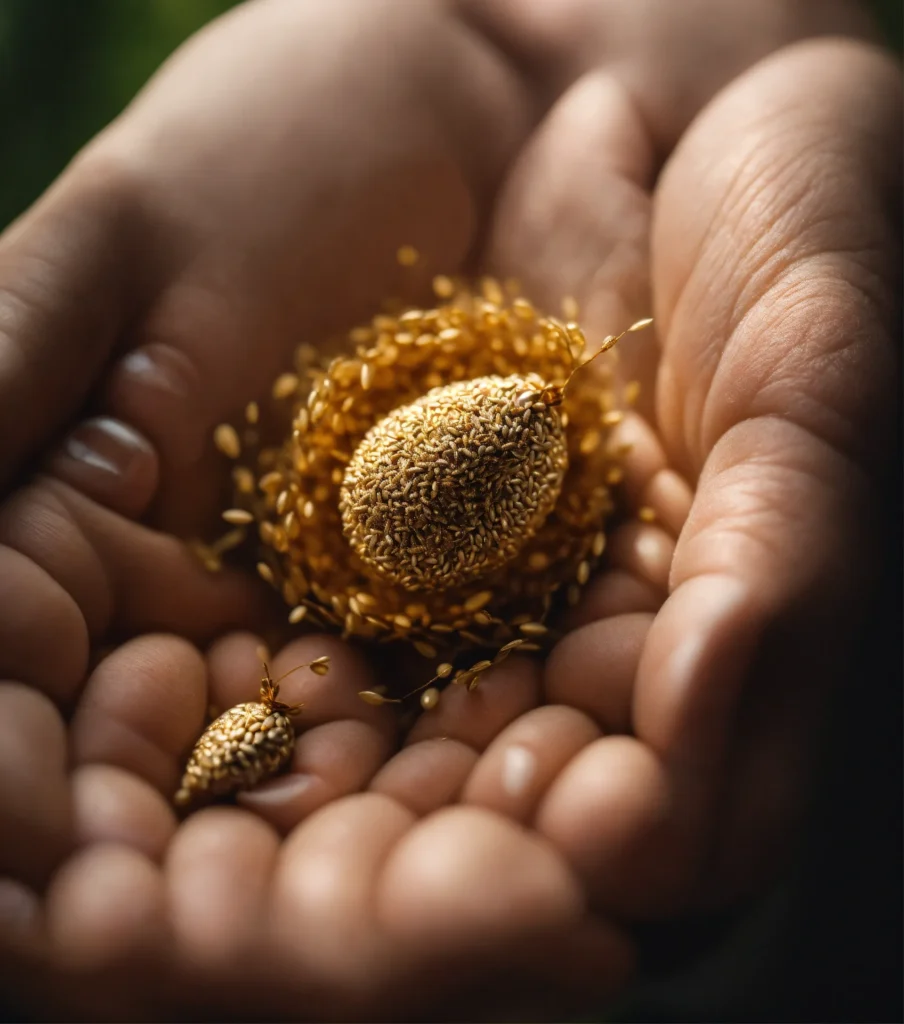
The little boy had never owned anything in his life. Not a toy, not a book, not even a pair of shoes that weren’t passed down from an older cousin. But one summer afternoon, as he walked past the market with a few coins jingling in his pocket—earned from helping the old postman sort letters—he saw something that made him stop.
It was a tiny clay pot, no bigger than his palm, with a single green shoot pushing through the soil. The old gardener sitting beside it smiled at him. “It’s a peepal tree,” he said. “A mighty tree one day, but just a baby now.”
The boy ran his fingers over the cool clay pot, feeling the dampness of the earth. “How much?” he asked, his voice barely above a whisper.
“Two rupees.”
He had exactly that much.
Clutching the pot to his chest, he ran home, his heart thudding with a strange excitement. His house was a little mud hut at the edge of the village, where the earth cracked in the summer and turned to mush in the rains. His mother, weary from a long day of work, frowned when she saw him. “What will you do with a plant, Karan? We barely have enough water for ourselves.”
“I will find a way,” he said simply, and that was that.
Every morning, before the sun rose, he walked a mile to the well and filled a small earthen cup. It wasn’t much, but it was enough. He spoke to the plant as he watered it, whispering secrets and dreams of a future where he would be big and strong, where he would build a house with a roof that didn’t leak, where his mother wouldn’t have to work so hard.
Seasons passed, and the little plant grew. Its roots pushed deep into the earth, its leaves unfurled like tiny green hands. The villagers laughed at him at first. “Why waste water on a tree when you could use it for yourself?” they said. But he ignored them. Something inside him told him this tree mattered, that it was his and he was its.
Then, one monsoon, the rains came harder than ever before. The river swelled and roared, spilling into the village, tearing away homes and fields. Karan and his mother clung to the roof of their hut, watching helplessly as the water swallowed everything they knew.
When the storm passed, they stepped onto the ruined land, lost and broken. And then Karan saw it. His tree—no longer a sapling, but strong, its roots gripping the earth with quiet determination. And around it, the soil was firm, untouched by the flood.
The villagers gathered, their eyes wide with wonder. “Your tree saved the land,” someone murmured.
Karan ran to it, pressing his face to its wet bark. It had survived. It had held on. Just as he would. Just as his mother would.
Years later, when he was no longer a boy but a man, when his house stood sturdy and his mother no longer worked in the fields, the tree stood taller than all the roofs in the village, its leaves rustling like an old friend telling him a story he had always known.
And every time someone walked past it, finding shade under its mighty branches, they would say, “This is Karan’s tree. The tree that refused to let go.”
Karan would sit beneath its vast canopy, feeling the cool earth beneath him, running his fingers over the gnarled bark, remembering the boy who once carried a fragile sapling home in his small hands. And as the wind whispered through the leaves, he would close his eyes, knowing that love, devotion, and patience could turn even the smallest seed into something unbreakable, something eternal.
And on quiet nights, when the village lay in slumber, his mother would sometimes rest beneath the tree, her wrinkled hands brushing against its roots, tears glistening in her tired eyes. She knew, just as Karan did, that this tree was more than just wood and leaves—it was proof of a promise, of a boy’s love, of the life they had built together, one drop of water, one moment of faith at a time.
Source: Read MoreÂ

